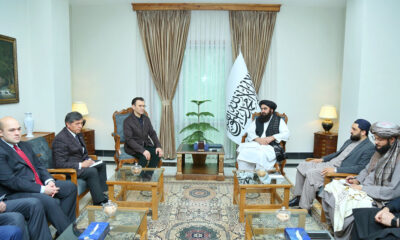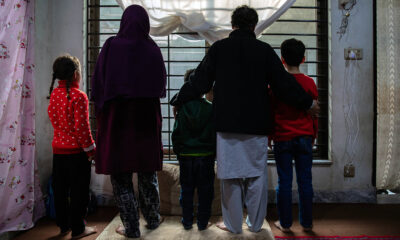Latest News
Concerns over new amendments to media law

Lawyers say that the imposition of restrictions in the new amendments to the media law is in contrast with the constitution.
Officials in some media outlets and media supporting organizations do not see the new adjustments to be acceptable and warn that new restrictions on media outlets will weaken the defense of freedom of expression amid the peace talks.
A draft of the new amendment to the Public Media Law has been developed by the Ministry of Information and Culture; a part of it, in the perspective of the media community, is against the Constitution and the Universal Declaration of Human Rights – it imposes new restrictions on the work of the media and the way to freedom of expression.
A number of members of parliament also say that amendments that are against the law will not be passed by the House.
From the point of view of the Afghan media community, the new amendments to the Public Media Law impose double and unnecessary restrictions, including censorship before and after publication, and unnecessarily withholding the truth in sensitive matters.
As the Afghan peace talks are around the corner, the imposition of such restrictions on the media is detrimental to the position of defending the freedom of expression at the negotiating table with the Taliban.
“I think it is just a draft, and there is a possibility for modification,” said Mujib Khalwatgar, head of Afghanistan’s Free Media Watch.
In response to the concerns, Saber Momand, the spokesman for the Ministry of Information and Culture, said, “The law on public media has not been amended yet. If there is any, it will be discussed with the media community.”
Also, the Afghan media community, in a letter, has shared its concerns with the President of Afghanistan.
Latest News
Doha process private sector meeting highlights growth and coordination in Afghanistan
The session was divided into two segments, focusing on growth and inclusion in the first part, and coordination and transparency in the second.
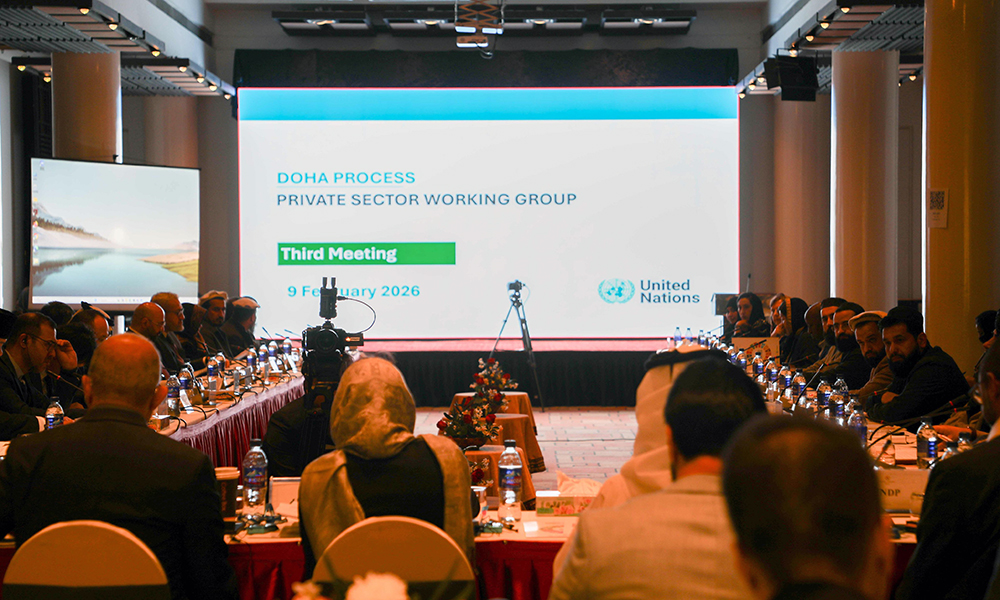
The 3rd session of the Doha Process Private Sector Working Group was held both in-person and online at Kabul’s Grand Hotel, hosted by the United Nations Assistance Mission in Afghanistan (UNAMA).
The meeting brought together representatives from the Islamic Emirate of Afghanistan, including the Ministries of Foreign Affairs, Finance, Industry and Commerce, Economy, Labor and Social Affairs, and the Central Bank, alongside UNAMA, UN agencies, international and regional organizations, as well as ambassadors, diplomats, and private sector experts.
The session was divided into two segments, focusing on growth and inclusion in the first part, and coordination and transparency in the second.
Afghanistan’s Islamic Emirate representatives shared achievements and progress since assuming governance, while participants acknowledged these efforts and highlighted their ongoing support for the private sector. All parties offered recommendations to address challenges and emphasized enhanced cooperation moving forward.
International Sports
IPL 2026: Franchise sales gather pace as global investors circle teams
Royal Challengers Bengaluru (RCB) has been put on the market by its current owner and is estimated to be worth up to $2 billion.

Developments off the field are drawing growing attention ahead of the 2026 Indian Premier League season, with two franchises — Royal Challengers Bengaluru and Rajasthan Royals — formally up for sale and attracting interest from high-profile domestic and international investors.
Royal Challengers Bengaluru (RCB), one of the league’s most recognisable teams, has been put on the market by its current owner, Diageo’s United Spirits Ltd, following a strategic review. The sale process is expected to be completed by the end of March 2026. Market estimates suggest the franchise could be valued at around $2 billion, reflecting the soaring commercial value of the IPL.
Several bidders have been shortlisted for RCB, including investment groups led by Indian industrialists, private equity firms and overseas sports owners. Among those reported to have shown interest is a consortium linked to the Glazer family, co-owners of English Premier League club Manchester United. Non-binding bids have already been submitted, with binding offers expected in the coming weeks.
Rajasthan Royals (RR), winners of the inaugural IPL title in 2008, are also in the process of being sold. A shortlist of potential buyers has been finalised, featuring a mix of Indian and international investors, including private equity firms, entrepreneurs and media-linked groups. The franchise is expected to attract a valuation of more than $1 billion, according to market estimates.
Final bids for Rajasthan Royals are anticipated in early March, while the RCB transaction is expected to move into its final phase later this month. Any change in ownership will require approval from the Board of Control for Cricket in India (BCCI).
The potential sales mark one of the most significant ownership shake-ups in IPL history and underline the league’s growing appeal as a global sports investment as preparations continue for the 2026 season.
Latest News
FM Muttaqi meets Uzbek Central Asia Institute Chief, stresses stronger bilateral cooperation
During the meeting, the two sides discussed ways to further strengthen political and economic cooperation, as well as key regional issues.
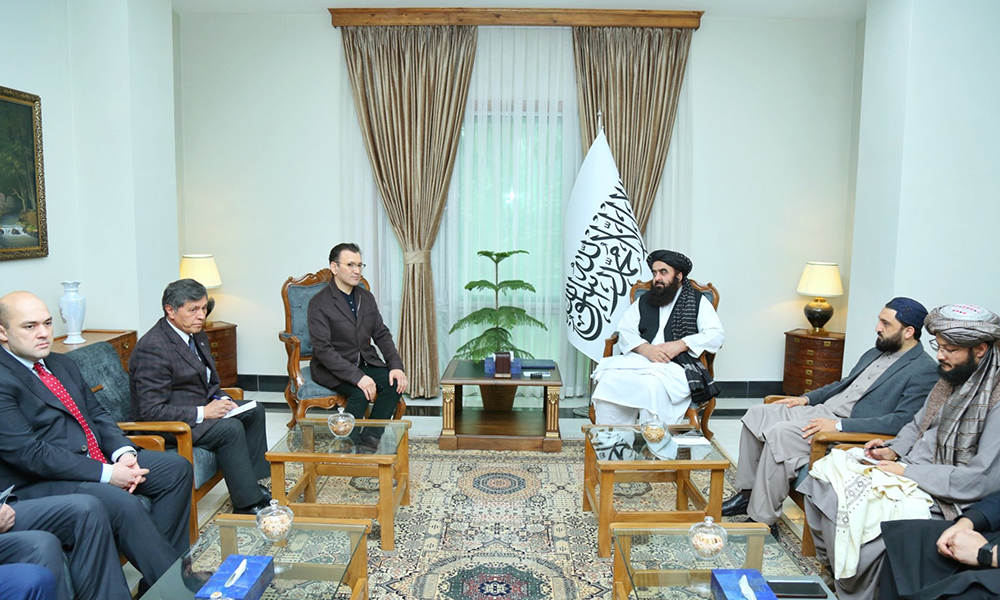
Afghanistan’s Minister of Foreign Affairs, Amir Khan Muttaqi, has met with a delegation led by Joulan Vakhabov, head of Uzbekistan’s International Institute of Central Asia and adviser to the country’s deputy president.
During the meeting, the two sides discussed ways to further strengthen political and economic cooperation, as well as key regional issues.
Muttaqi said Uzbekistan has adopted a positive and goodwill-based policy toward Afghanistan, expressing hope that bilateral relations and cooperation would continue to expand.
He also underscored the important role of research institutions in promoting mutual understanding, enhancing cooperation, and developing a realistic assessment of regional dynamics.
For his part, Vakhabov praised the progress and stability in Afghanistan and voiced optimism that trade between the two countries would increase further in the current year.
-

 Latest News3 days ago
Latest News3 days agoAfghanistan to grant one- to ten-year residency to foreign investors
-

 Sport4 days ago
Sport4 days agoIndonesia shock Japan to reach historic AFC Futsal Asian Cup final
-

 Sport3 days ago
Sport3 days agoIran clinch AFC Futsal Asian Cup 2026 in penalty shootout thriller
-

 Latest News3 days ago
Latest News3 days agoAfghanistan says Pakistan is shifting blame for its own security failures
-

 International Sports2 days ago
International Sports2 days agoWinter Olympics gain momentum as medal table takes shape
-

 Latest News5 days ago
Latest News5 days agoAfghanistan facing deepening hunger crisis after US Aid Cuts: NYT reports
-
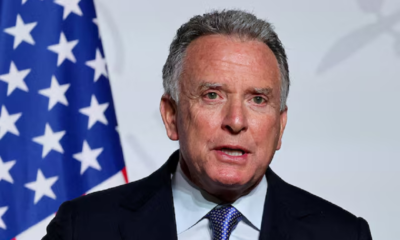
 World5 days ago
World5 days agoUS, Ukraine, Russia delegations agree to exchange 314 prisoners, says Witkoff
-

 Latest News3 days ago
Latest News3 days agoTraffic police receive new cars










